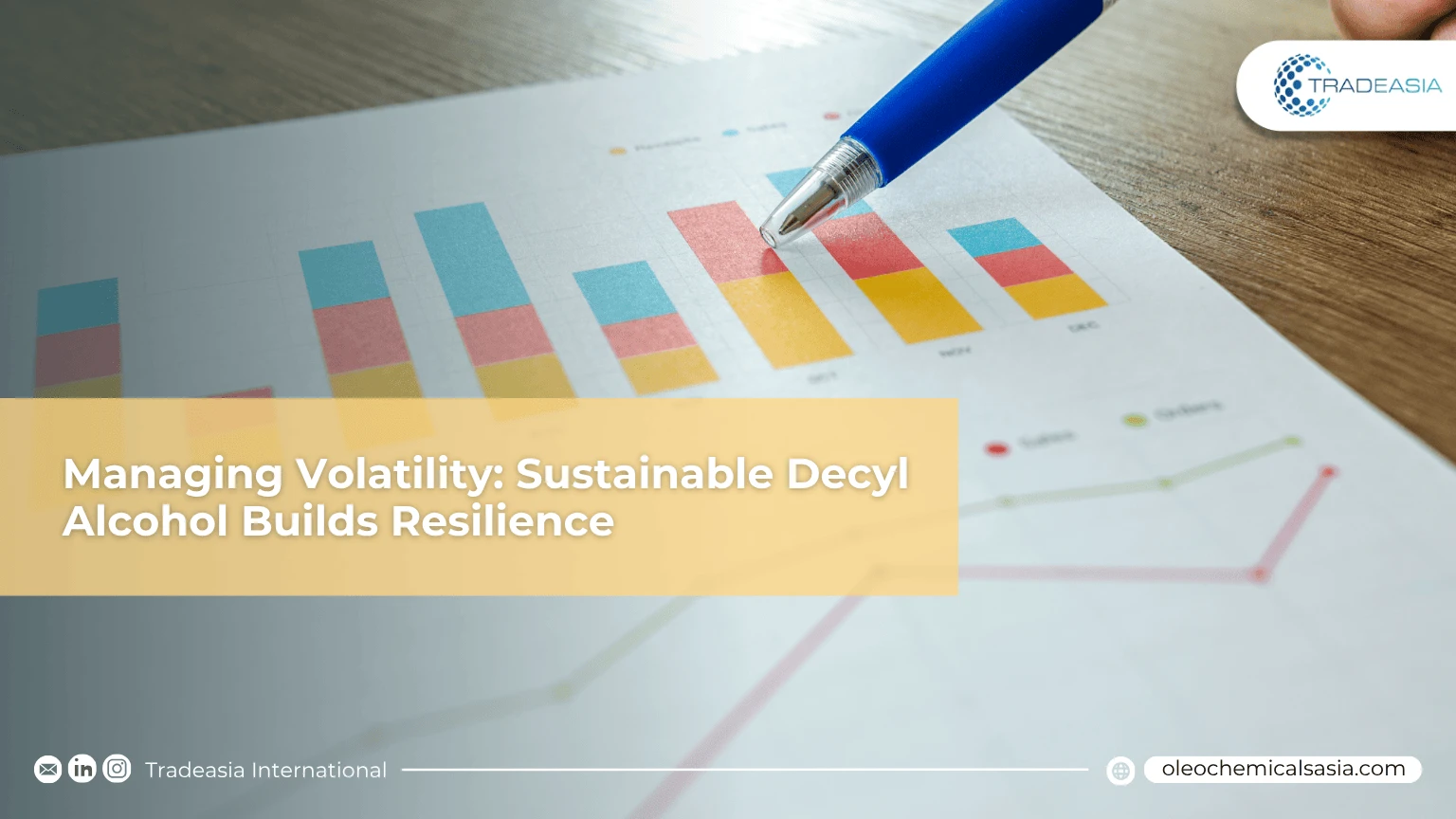Managing Volatility: How Sustainable Decyl Alcohol Secures Supply Chain Resilience

Table of Content
- Insulating Supply from Commodity Price Swings
- The Business Value of Enhanced Traceability
Procurement executives managing specialty chemical portfolios understand that true business resilience is measured by the ability to weather commodity price and geopolitical volatility. For Decyl Alcohol (1-Decanol), a crucial intermediate for lubricants and plastics, price stability is inextricably linked to the stability of its feedstock: Palm Kernel Oil (PKO) and Crude Palm Oil (CPO). In the volatile trading environment of October 2025, proactive sustainable sourcing is the most effective hedge against unpredictable supply chain shocks.
Working with a procurement partner that operates at the nexus of the palm and oleochemical value chains offers a distinct advantage. "The complex art of trading palm derivatives requires more than just capital; it demands a trusted global network capable of delivering certainty in an uncertain world."
Insulating Supply from Commodity Price Swings
The inherent exposure of C10 production to feedstock price is substantial. CPO futures experienced a 15% volatility range this month, and the PKO-to-CPO price ratio fluctuated by 7%, directly pressuring Decyl Alcohol production margins. While Asia-Pacific remains the source of approximately 60% of global C10 production, the path to supply security is not volume, but verified quality. Price stability can be engineered: data indicates that long-term contracts for certified, segregated sustainable Decyl Alcohol offer clients up to 10% greater price consistency compared to conventional mass-balance procurement over an 18-month period (Source: BIMCO Liquid Cargo Database, October 2025). This stability effectively offsets the financial risk associated with global commodity price spikes.
The Business Value of Enhanced Traceability
Beyond pricing, traceability acts as an indispensable operational safeguard. The investment in end-to-end, certified supply chains dramatically minimizes operational risk. Studies show that C10 shipments with full traceability—particularly the segregated models—experience up to 20% fewer delays or rejection issues at major global ports compared to non-certified or mass-balance alternatives (Source: ISEAL Alliance: Navigating EUDR and Compliance). For sectors like Plastics and Lubricants (which account for an estimated 40% of C10 consumption), this reduced friction in logistics translates directly into optimized inventory and continuous production flow. By prioritizing certified derivatives, businesses are paying a strategic premium to eliminate the unpredictable bottlenecks and reputational exposure inherent in the conventional, high-risk commodity market, securing their operations for the future (Source: Palm-Chemicals.com: Market Insights on PKO/CPO Price Ratio Impact and Benefits of Segregated Sourcing).
Sources:
-
Palm-Chemicals.com - Market Insights on PKO/CPO Price Ratio Impact and Benefits of Segregated Sourcing (https://www.palm-chemicals.com/supply-chain-insights)
-
BIMCO Liquid Cargo Database, October 2025 - Decyl Alcohol (All Isomers) (https://www.bimco.org/news-insights/bimco-news/2025/10/14-liquid-cargo-of-the-month/)
-
ISEAL Alliance - Navigating EUDR: compliance and beyond | Palm oil (https://isealalliance.org/node/5251)

Leave a Comment